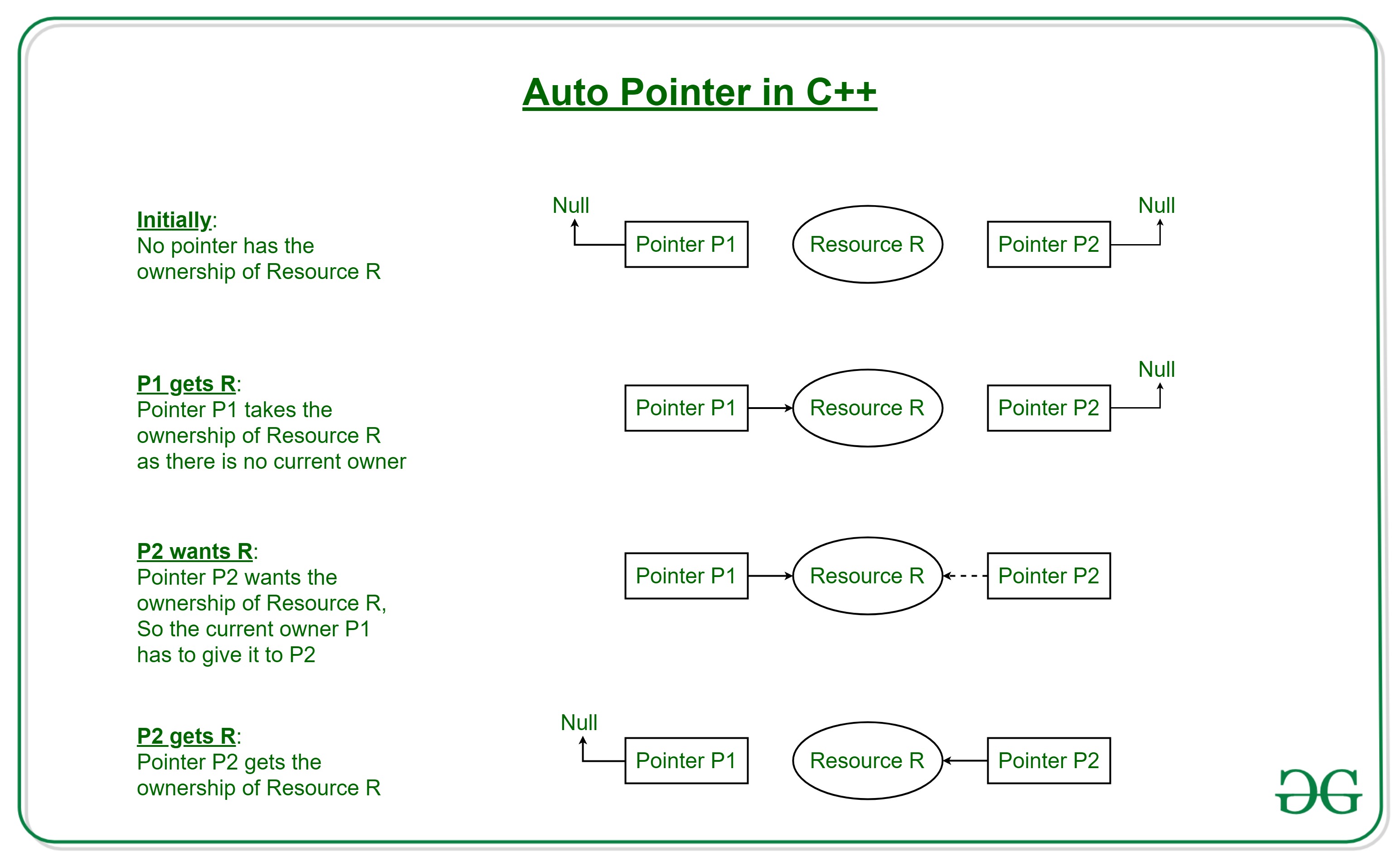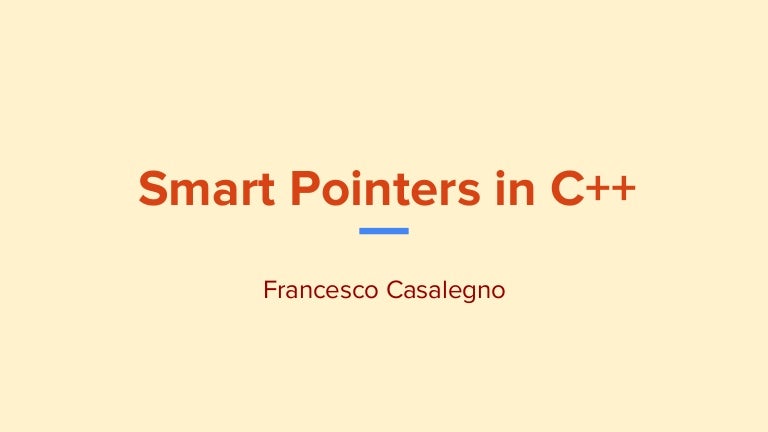C Unique_ptr Vs Shared_ptr
Make_unique is safe for creating temporaries whereas with explicit use of new you have to remember the rule about not using unnamed temporaries. One of the helpful features of unique_ptr is that it can be seamlessly converted to a compatible shared_ptr.

No New New Raw Pointers Removed From C Modernescpp Com
Several shared_ptr objects may own the same object.

C unique_ptr vs shared_ptr. For the sorting benchmark demonstrated in this article shared_ptr is about 10 slower than unique_ptr. Note that stdshared_ptr behaves differently. Its only when reference counts drop to zero can the resource be deallocated.
As for size while the size of unique_ptr is exactly the size of a raw pointer shared_ptr is about twice as large. Ill touch on the advantagesdisadvantages of the different ways to use custom deleters and the difference between unique and shared ptr. Stdshared_ptr is a smart pointer that retains shared ownership of an object through a pointer.
Any business logic your program followed to ensure the uniqueness of the resource is still valid but to go from business logic where you took advantage of the shared-nature of stdshared_ptr would take some time and focus to rework to a unique mindset. The object is destroyed and its memory deallocated when either of the following happens. The last remaining shared_ptr owning the.
The obvious difference is that you can have many consumers sharing responsibility for a dynamic object hence shared and the object will only be destroyed when all shared pointers have gone away. My own two cents is that it is also a trivial matter to replace occurrences of stdunique_ptr with stdshared_ptr. Shared_ptr entered the standard in C11 but appeared in boost well before that.
Unique_ptr does not use those thus theres no corresponding advantage aside from making sure the object is always owned by the smart-pointer. Shared_ptr needs to track the number of pointers to the same object therefore copy operations etc. When that shared_ptr is recognized to be the last one.
The stdunique_ptr and stdshared_ptr are smart-pointers. Deduplicator Feb 28 15 at 2331. Exception safe foo unique_ptr new T unique_ptr.
A single memory resource can be held by several stdshared_ptrs at the same time. Shared_ptr on the other hand is a very different animal. The motivation behind make_unique is primarily two-fold.
Many shared_ptr instances may hold onto one underlying object each with the responsibility to delete the object under one and only one circumstance. Shared_ptr B will use the operator delete for the type T and the owned object will be deleted correctly even if the destructor of B is not virtual. A shared_ptr is a container for raw pointers.
A shared_ptr actually sets up a structure in memory which allows for reference counting weak pointers etc. Similarly with unique_ptr the only thing that will ever delete the object will be the unique_ptr when it is destroyed. It is with shared_ptr that we come to the concept of shared containment.
The type of the deleter is defined as part of the unique_ptr and you define it as the second template parameter then when constructing the type you must pass through the type specified as. But to make sense of why we need to specify the deleter differently for a unique_ptr lets think about how the two smart pointers are implemented. Are nontrivial and therefore less performant than unique_ptr.
When to use unique_ptr. Since there can be one unique_ptr for single resource its not possible to copy one unique_ptr to another. An stdunique_ptr owns an object exclusively whereas the ownership of an object can be shared via stdshared_ptr instances.
Use unique_ptr when you want to have single ownershipExclusive of the resource. The default deleter of the resulting std. As an aside one can have a shared_ptr which owns an underlying object and represents a nullptr or which does not own and represents a non-nullpointer.
You dont pass the unique_ptr nor a reference to it but rather a reference to the pointed to object. For comments please send me an email. Foo make_unique make_unique.
Unique_ptr B will use operator delete for B leading to undefined behavior unless the destructor of B is virtual. Their added benefit over using raw pointers is automatic memory management of dynamically allocated resources so that you dont have to make explicit calls to delete. Only one unique_ptr can point to one resource.
The number of shared_ptrs weak_ptrs and the deleter have to be managed per object on the free store so if you dont use make_shared you have the overhead of an additional allocation and deallocation for each. Both are examples of smart pointers. Stdunique_ptr house buildAHouse.
Its generally a good idea to use them as. Unique_ptr is also what auto_ptr wanted to be in the old C but couldnt because of that languages limitations.

Smart Pointers In C What Why And How With David Millington Coderage Xi Youtube

Master C Pointers And Smart Pointers Basic Programming Udemy Pointers

Auto Ptr Unique Ptr Shared Ptr And Weak Ptr Geeksforgeeks

Synchronized Output Streams With C 20 Modernescpp Com

Smart Pointers In C And C With Weak Ptr Unique Ptr Weakreference 35 Pointers Smart Language

Std Shared Ptr Modernescpp Com

Create Gui App In C And C With Dll Library Framework On Visual Studio Visual Library Framework

Post a Comment for "C Unique_ptr Vs Shared_ptr"